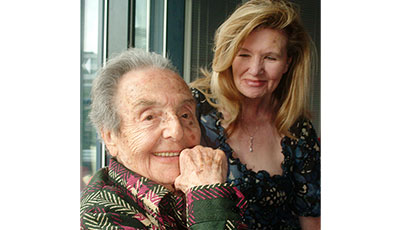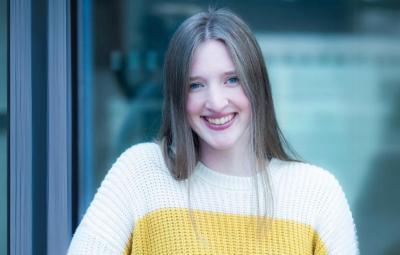
In the words of John Jay adjunct professor and artist-in-residence Caroline Stoessinger, “Music is a language, and it’s my language.” Now, Stoessinger, with the help of Professor Nathan Lents, interim director of the Macaulay Honors College at John Jay, is sharing that language through a new program that gives free private piano lessons to selected students.
Students applied over the summer by writing an essay describing why they are interested in taking piano lessons, and 11 students were selected for the program, where they will receive one private lesson per week over the course of the semester. “You don’t learn music in a large class,” Stoessinger said. “Every human being has a different hand. Some of them have natural technical facility, and others have great intellectual facility, but they will all learn to play.”
One student, Michelle Formato, a junior Criminology major and Music minor, says she has been playing drums since the age of 13 and “can’t think of life without music.” Formato is actually a big heavy metal fan, but she welcomes the challenge of learning piano. “I like the skill set it’s giving me. I’m learning a whole new aspect of music,” she said “And I like that it’s a peaceful instrument.” Formato is currently learning to play Bach’s Minuet in G. “I’ve definitely made progress in first few weeks,” she said, “but there is a lot of room for improvement.”
Stoessinger, an accomplished pianist who has performed at Lincoln Center, Carnegie Hall, and other prominent stages around the world, is intensely passionate about music in education, and laments the fact that it no longer included in most early education curriculums. “I really feel that it’s part of your moral education. It’s the language of the soul, the language of the emotions, which we need some way to express,” she said.
Growing up in the Ozark Mountains, Stoessinger learned to play as a little girl. “There were two piano teachers in town, one who could read music, and one who couldn’t. I paid 25 cents extra for the one who could,” she recalled. By age 9, she was giving piano lessons herself, and soon acquired her first job as the organist for the town funeral home.
Stoessinger is adamant about the ability of music to alter one’s life conditions. “Music is a great escape from poverty,” she said, pointing to Harry Burleigh, an African-American baritone from New York City who became a great influence on famed Bohemian composer Antonin Dvorak, and rose to considerable status despite facing intense racial oppression. She hopes to bring students to the Metropolitan Opera to see Cathleen Battle perform a recital of spirituals.
“My dream is to re-establish the National Conservatory of Music in America,” she said, referring to the first conservatory to invite women, people with disabilities, people of color, and other disenfranchised groups to study and develop their musical talent.
On Dec. 6, as part of the Honors Program’s annual holiday party, Stoessinger and Lents hope to have piano students perform carols for an audience sing-along. “You can’t just learn music intellectually; it is an experience,” she said.



